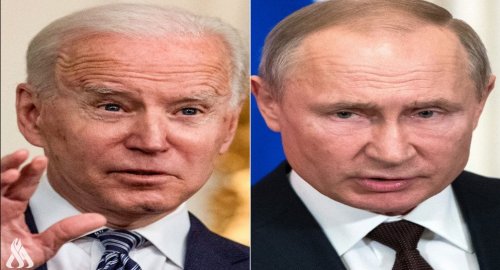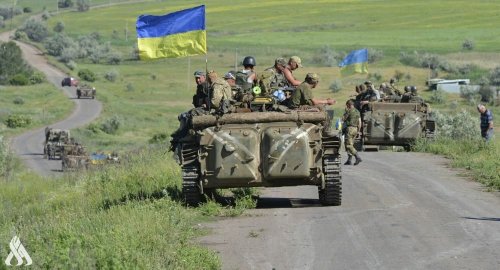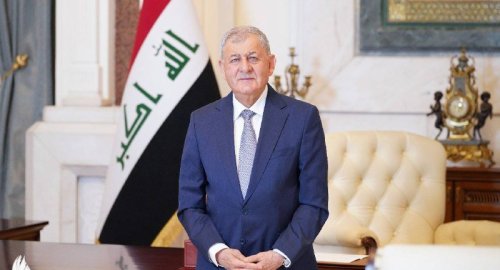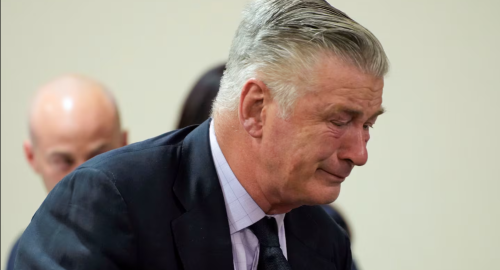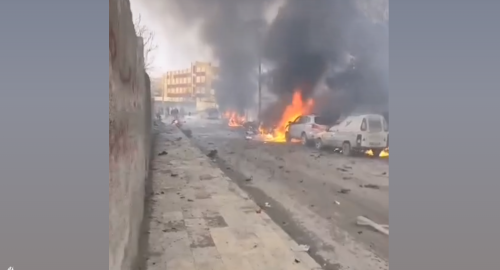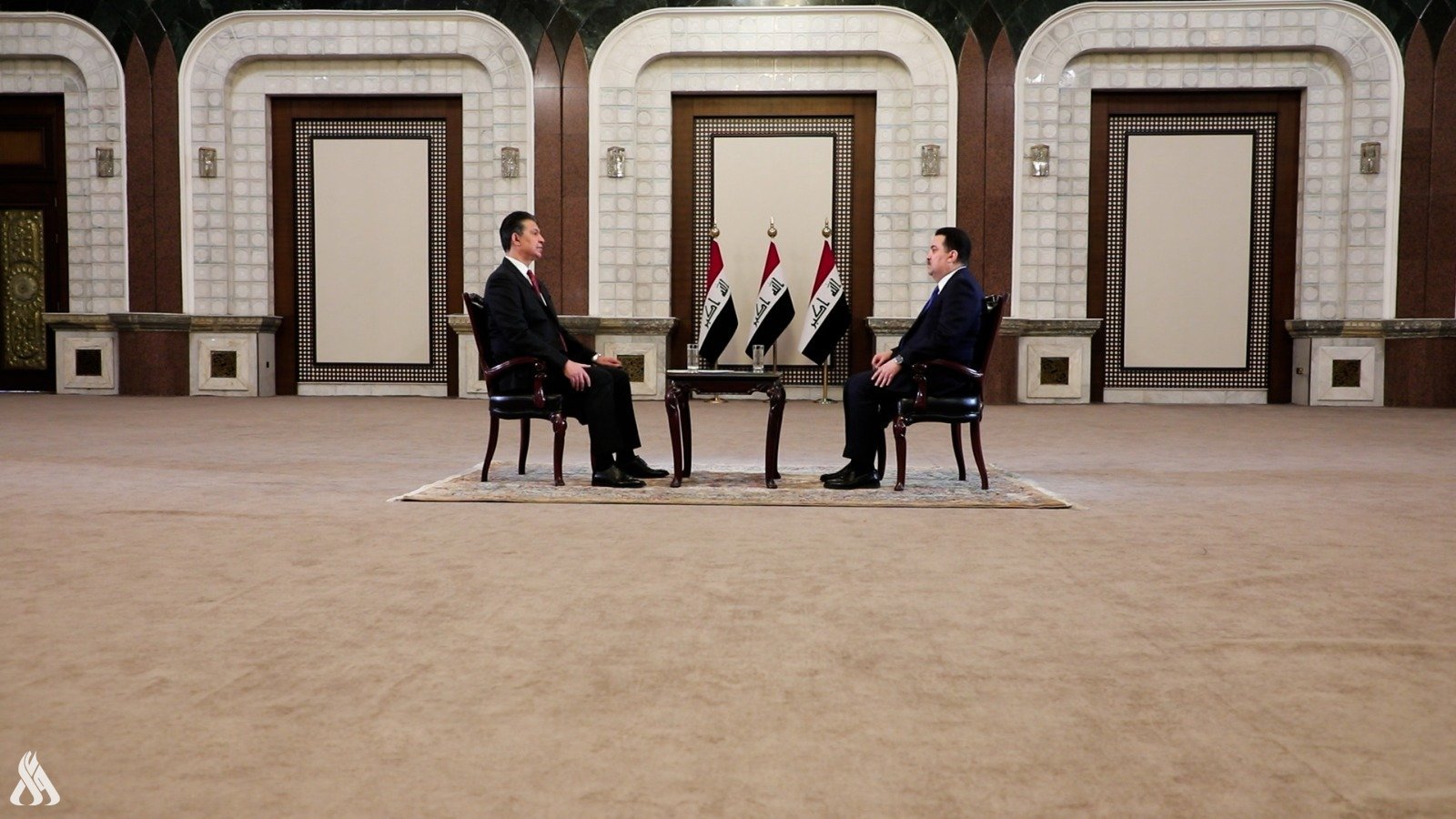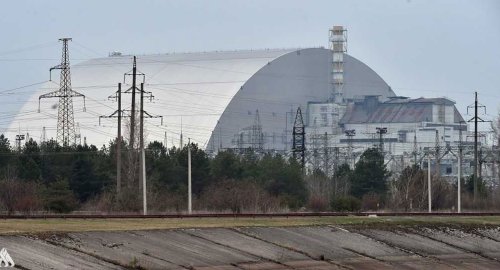
IAEA warns of Russian bombing a village where the Chernobyl nuclear plant crew lives

- 25-03-2022, 09:33
INA-sources
The atomic agency has warned of a Russian bombing of a village where the Chernobyl nuclear plant crew lives.
The Russian-Ukrainian conflict gained a new turning point, on February 21, after Russian President Vladimir Putin announced the recognition of Donetsk and Luhansk as independent republics of Ukraine, in an escalatory step that drew great anger from Kyiv and its Western allies.
In the wake of this, the Russian forces began, at dawn on Thursday, February 24, to launch a military operation in eastern Ukraine, which opened the door to the possibility of the outbreak of a “third world war”, which would be the first in the twenty-first century.
The European Union said the world has been living in a “blacker atmosphere” since World War Two, while the European Union and the United States imposed a package of sanctions against Russia, which European Commission President Ursula von der Leyen described as “the toughest ever”.
However, the European Union and the North Atlantic Treaty Organization “NATO” have so far insisted not to engage in any military operation in Ukraine, and the EU countries also refuse to impose a no-fly zone in Ukraine, contrary to the desire of Kyiv, which called on European countries to take that step, Which the US administration said would cause a “third world war”.
Meanwhile, Russian Foreign Minister Sergei Lavrov said, earlier, that the outbreak of a third world war would be “nuclear and destructive,” as he described it.
On the scene of the events, the Russian Defense Ministry said, at the beginning of the military operation, that the Ukrainian air defense system and its bases had been destroyed and the infrastructure of the Air Force was out of service.
Later, the Russian Defense announced, on Saturday, February 26, that it had issued orders to the Russian forces to launch military operations on all axes in Ukraine, following Kyiv’s refusal to enter into negotiations with Moscow, while Ukraine attributed that refusal to Russia putting conditions on the table before negotiating rejected for Ukraine.
However, the two sides sat to negotiate for the first time, on Monday, February 28, in the city of Gomel on the Belarusian border, and a second round of talks was held on Thursday, March 3, while the two sides held a third round of talks in Belarus, on Monday, March 7, and the three rounds of negotiations ended without making a noticeable change on the ground.
The head of the Russian delegation said that his country’s expectations from the third round of negotiations “did not materialize”, but indicated that meetings with Ukraine would continue, while the Ukrainian delegation spoke of a slight progress in negotiations with the Russians on “safe corridors.”
Prior to that, Ukrainian President Vladimir Zelensky signed, on February 28, a decree on his country’s application to join the European Union, in a move that did not find Russian opposition, as the issue of Kyiv’s accession to the North Atlantic Treaty Organization “NATO”.
Russian Kremlin spokesman Dmitry Peskov said that the European Union is not a military-political bloc, noting that the issue of Kyiv’s accession to the union does not fall within the framework of strategic security issues, but falls within a different framework.
At the international level, the United Nations General Assembly voted, on Wednesday, 2 March, to condemn the Russian war on Ukraine, with 141 countries approving the draft resolution, while only 5 countries rejected the issue of condemning Russia, while 35 countries around the world abstained.
Meanwhile, the Ukrainian authorities have imposed martial law throughout the country since the start of the Russian invasion of Ukrainian territory.
Before starting a military operation against Ukraine, Russia had always rejected the West’s accusations of preparing for an “invasion” of Ukraine, and said that it was not a party to the internal Ukrainian conflict.
However, this was not convincing for Western circles, which were basing their accusations of Moscow of preparing for the invasion of Ukraine, on Russia’s deployment of about 100,000 Russian soldiers a few weeks ago on its borders with Ukraine, a country close to the West, saying that “this invasion could take place in any time”.
But Russia justified this at the time that it only wanted to ensure its security, at a time when Washington sent military reinforcements to Eastern Europe and Ukraine as well.
For its part, Moscow accused the West at the time of using these accusations as a pretext to increase the military presence of NATO near its borders, at a time when Russia was and still insists on rejecting the issue of NATO expansion, or Ukraine joining the alliance, while Kyiv is eager to join the NATO banner.
Source: News Agencies
Car bomb explosion in Manbij, Syria
- International
- 04:41
Technical glitch halts American Airlines flights on Christmas Eve
- International
- 04:38
US Central Command: We killed ISIS terrorist leader Abu Yusuf in Syria
- International
- 24/12/20
Liverpool compete with Real Madrid to sign Olympique Lyonnais star
- Security
- 24/12/19
Hackers exploiting Microsoft Teams to gain remote access to user’s system
- Multimedia
- 24/12/17
The discovery of Pre-Christian human settlement sites in Iraq
- Investigations and reports
- 24/12/18
